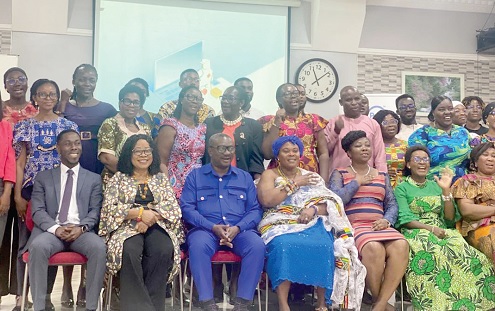Civil Society Organisations (CSOs) working in various sectors to promote human rights have undergone a two-day capacity-building training on how to assess human rights records and make recommendations for future implementation.
The workshop on Ghana’s mid-term United Nations (UN) Universal Periodic Review (UPR) was organised by the POS Foundation, a human rights civil society organisation, in partnership with the Planned Parenthood Association of Ghana (PPAG) and funded by the United Nations Population Fund (UNFPA).
It was aimed at enhancing the capacity of the participants with the knowledge and platform needed to draft a consolidated joint mid-term report for submission to the UN Human Rights Council.
Representatives of the Commission on Human Rights and Administrative Justice (CHRAJ), Ministry of Gender, Children and Social Protection, the POS Foundation, foreign missions and civil society organisations (CSOs) were present at the workshop to develop a mid-term report to be shared with the United Nations.
The report ensures the implementation of the recommendations of a number of human rights issues Ghana received from member states, such as ensuring the rights of marginalised groups, press freedom, the rights of women and children, disability, access to justice, and the repeal of the death penalty.
Ghana has completed its fourth cycle of the UN Universal Periodic Review (UPR), receiving 298 recommendations, of which it accepted 265.
The UPR is a unique, state-driven peer review process of the UN Human Rights Council that assesses the human rights records of all 193 UN Member States every four to five years.
It involves countries presenting their progress, receiving questions and recommendations from other UN members, and then deciding whether to accept them for future implementation.
The UPR aims to improve human rights situations by promoting accountability and encouraging States to fulfil their human rights obligations under the UN Charter, Universal Declaration of Human Rights, and relevant treaties.
Commitment
The Deputy Commissioner of CHRAJ, Mercy Larbi, said Ghana’s engagement in the UPR process was a cornerstone of its commitment to promoting and protecting human rights.
She said it highlighted the nation’s dedication to upholding human rights standards and obligations.
Mrs Larbi stated that the workshop was an opportunity to deliberate, strategise and collectively chart a more effective path forward for the full realisation of human rights in Ghana.
“These deliberations should be approached with a spirit of constructive dialogue and a shared commitment to human dignity and rights,” she said.
Rationale
The Executive Director of the POS Foundation, Jonathan Owusu, said even though Ghana had made strides in some aspects of the human rights of its citizens, more could be achieved to make Ghana a safer place for everyone.
He stated that the workshop was not only to enhance the capacity of CSOs on UPR mid-term reporting processes and expectations, but to review progress on the implementation of key recommendations received during Ghana’s 4th Cycle Review.
He said the workshop also aimed to provide a platform for drafting and validating a unified civil society mid-term report, reflecting field-based data and experiences, while strengthening collaboration among CSOs and between civil society and the state in monitoring human rights progress.
For her part, Advocacy and Communications Lead at PPAG, Patience Ampomah, said although access to quality sexual and reproductive health services, including family planning, reproductive health education, and maternal health care, was a fundamental human right, many women, girls, and young people still face barriers that limit their ability to make informed choices about their bodies and their futures.

